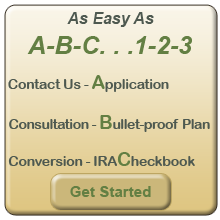 There’s never a bad time to start thinking about your retirement. One of the best things that you may want to consider is an IRA. Short for Individual Retirement Arrangement, these types of Individual Retirement Funds were introduced in 1974 along with the roll out of the Employee Retirement Income Security Act.
There’s never a bad time to start thinking about your retirement. One of the best things that you may want to consider is an IRA. Short for Individual Retirement Arrangement, these types of Individual Retirement Funds were introduced in 1974 along with the roll out of the Employee Retirement Income Security Act.
There are several different kinds of IRAs that you might want to consider adding to your portfolio. While different than traditional pension funds and 401(K) retirement funds, an IRA could still be the perfect thing to add to your retirement portfolio.
A No Fee IRA
A no fee IRA could be one of the most enticing options. Also known as a Roth IRA, a no fee IRA will allow you to make contributions without having to worry about any fees. While you won’t be eligible for tax deductions, you will not owe any taxes for the money in your account. Initially introduced in 1997, it’s estimated that 12% of all IRA accounts within the U.S. are no fee Roth IRAs.
A Traditional IRA
The oldest of the IRA types, this type of account established all the precedents that custodians follow today. As you make contributions, you’ll be eligible for tax deductions. Once you reach the age of 59.5, you can start taking money out, at which time it’ll be subject to certain fees. Any money withdrawn before that will be subject to a 10% penalty tax in addition to any other applicable taxes.
A Simple IRA
This type of plan is used primarily by small business owners. Like other self directed IRAs, there are certain limits. The contribution limit for this IRA is $11,500, unless you’re over the age of 50. In that instance, an extra $2,500 a year can be deposited. This IRA is typically considered to be in between the traditional and no fee IRA, in terms of complexity.
No matter which avenue you may choose to pursue, it helps to get advice from a true group of experts. Understanding everything that’s involved will only help you to get the best possible situation for yourself and your retirement. When you’re dealing with something as complex as an IRA, seeking out professional advice is never a bad move.




